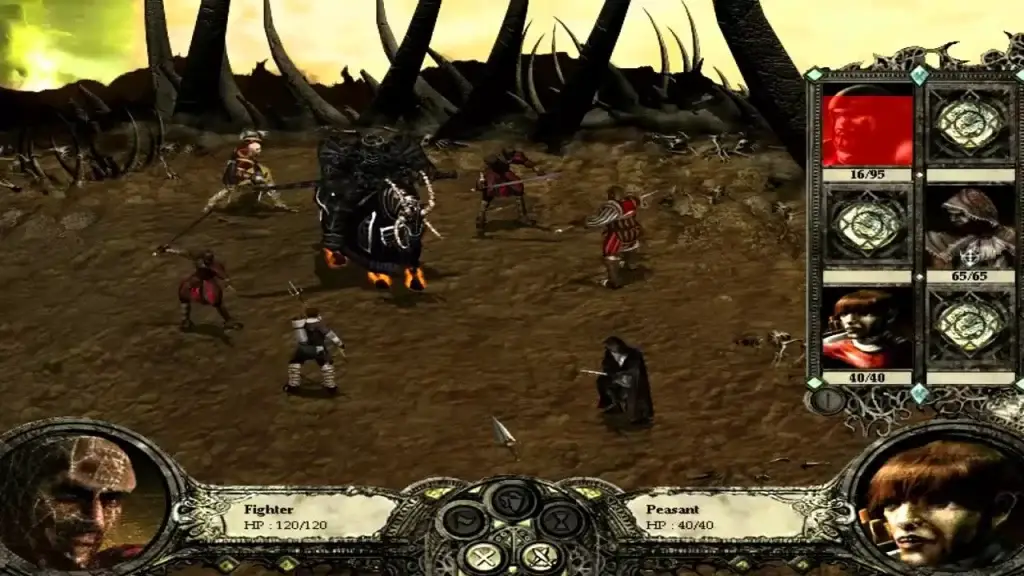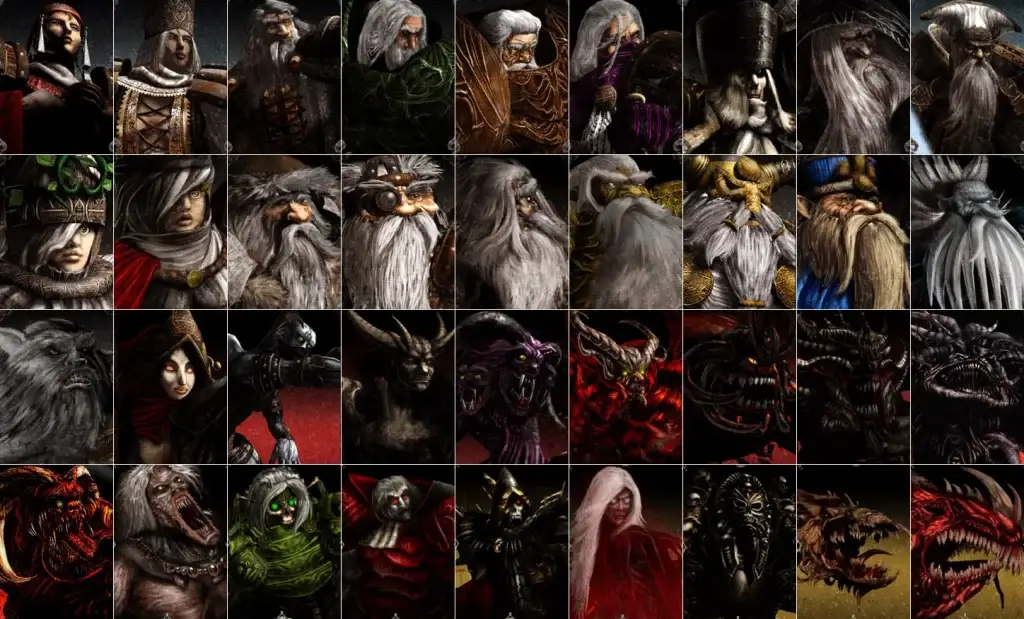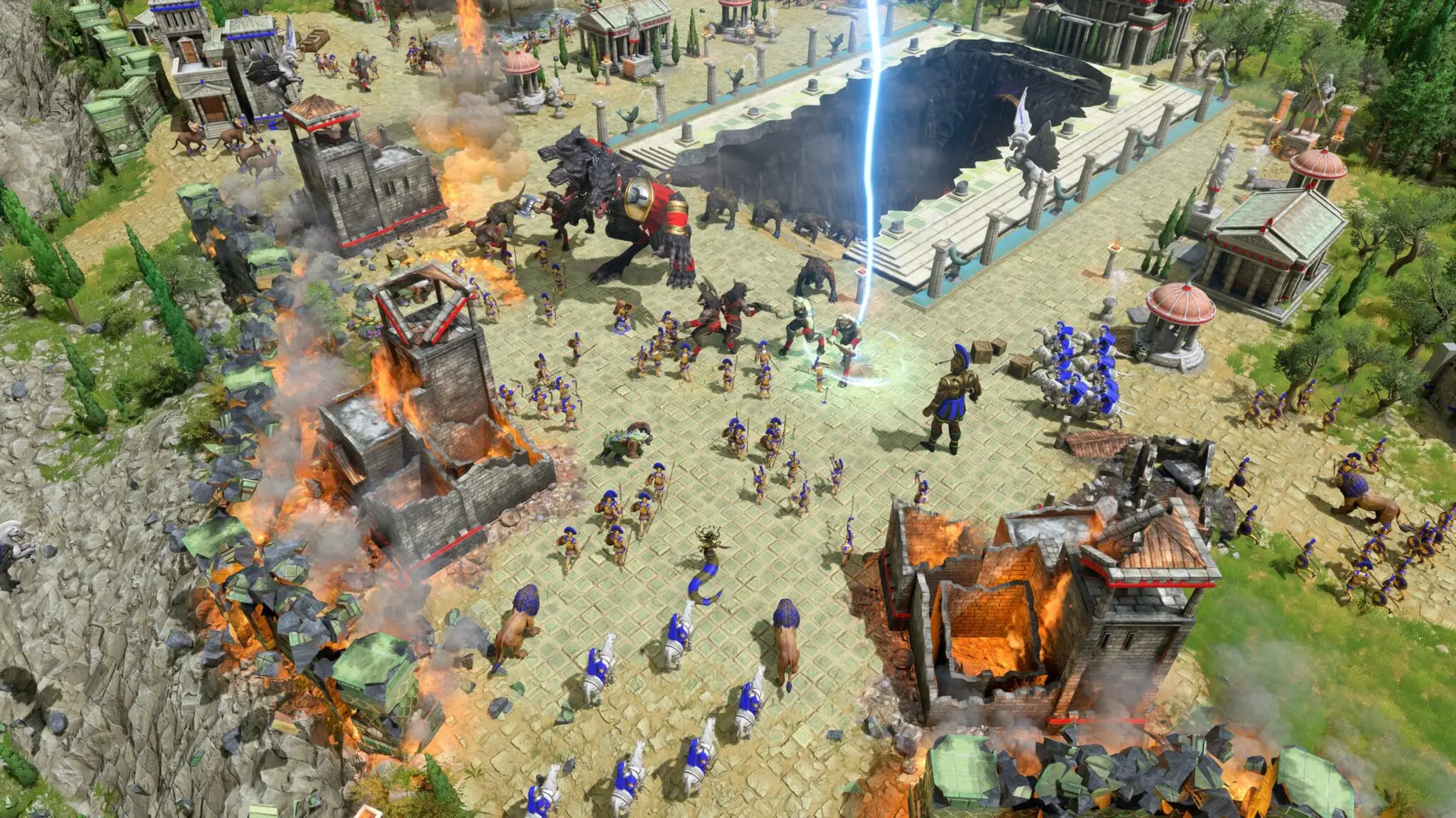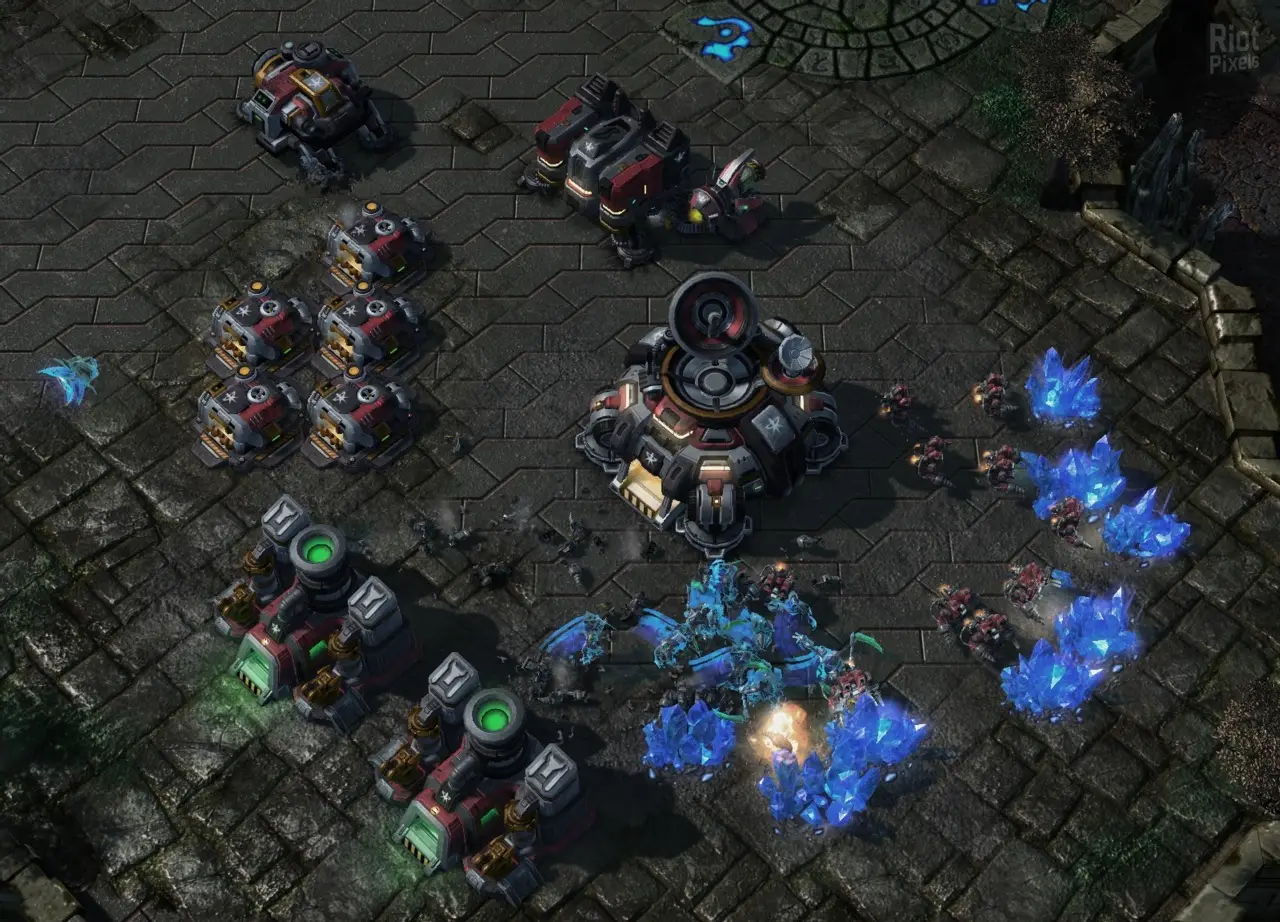When you recall games from the early 2000s, the first thing that comes to mind are the legendary turn-based strategies that have become classics of the genre, among which Disciples 2 stands out with its dark fantasy atmosphere and deep gameplay. The project did not just contribute to the genre – it changed the idea of what a fantasy world can be. Today, we will dive into its special world, discuss the mechanics and heroes, and remember what makes it truly unique.
Dive into the world of the game Disciples 2
The game Disciples 2 is about a dark fantasy world, where each kingdom is imbued with despair and hope. Four main races – the Empire, the Legion of the Damned, the Mountain Clans and the Union of the Undead – are fighting for power in a world full of mysterious creatures and ancient magic. The user meets not only heroes and monsters, but also encounters storylines that make you think about the meaning of life and death.
The developer Strategy First managed to create an atmosphere in which you can feel the tension of the battle, every dangerous journey of the hero. Harsh locations, gloomy castles and lands inhabited by followers of 2 empires fill the plot with real drama. Against the background of other turn-based strategies of those years, the game Disciples 2 looks deeper and more mature, which attracted even the most experienced gamers.
Features:
- Dark aesthetics – in contrast to the bright and optimistic worlds of many fantasy games, Disciples 2 creates a sense of an apocalyptic atmosphere.
- Unique characters – each hero or unit has its own history and motivation, which adds depth to the game.
- Culture and mythology – the developers were inspired by European mythology, which is felt in every element.
The world of Disciples 2 is not just a battlefield, but a space for exploration, where each location carries its own history. From sunken swamps to majestic mountain fortresses, the player feels like part of a large-scale story, where the struggle for power is just the tip of the iceberg.
Mechanics and gameplay
The turn-based strategy Disciples 2 combines a deep tactical component of the game with ease of mastering. Each battle is a tense clash, where even a small mistake can cost you victory. Here, the user not only controls the army, but also develops their heroes, learns spells and captures enemy territory.
 The gameplay includes many unique features: character development, skill upgrades and a choice of tactics. There are no banal battles in the game – any battle requires a thoughtful approach. The variety of heroes and units opens up dozens of tactics for the player, and resource management requires constant attention.
The gameplay includes many unique features: character development, skill upgrades and a choice of tactics. There are no banal battles in the game – any battle requires a thoughtful approach. The variety of heroes and units opens up dozens of tactics for the player, and resource management requires constant attention.
Features of the mechanics:
- Turn-based battles – each turn the participant must carefully plan their actions, be it an attack, defense or the use of magic. Hero development – heroes develop by gaining experience, which allows them to improve their skills and weapons.
- Territory capture – each territory brings resources that are necessary for creating new units and strengthening positions.
- Strategic thinking – each race has its own characteristics, which makes combat tactics unique.
The product uses a classic turn-based mode, which creates a unique feeling of control over every detail of the battle. Comparing the game Disciples 2 with its contemporaries, we can say that the mechanics still remain the standard for strategies, where every little thing matters.
Variety of Races and Heroes
One of the most exciting features of Disciples 2 is the variety of races. There are four races: the Empire, the Legion of the Damned, the Mountain Clans, and the Undead Alliance. Each has unique characteristics that determine the style of play.
- The Empire is a classic human race with strong healing magic and powerful cavalry. The heroes of the Empire are paladins and mages who represent the light side of the struggle.
- The Legion of the Damned is a demonic race whose main goal is to take over the world and destroy their enemies. Their heroes are demons and warlocks who can cast curses.
- The Mountain Clans are representatives of the dwarves, who have high defensive characteristics and powerful physical damage. Their heroes are masters of martial arts and alchemists who create deadly potions.
- The Undead Alliance are sinister creatures that resurrect the fallen and fill the world with fear. The heroes are necromancers and zombies who can control an army of the dead.
For example, the Empire focuses more on support and defense, while the Legion of the Damned aggressively advances, destroying everything in its path. Using magic and unique abilities of heroes allows the player to create many tactics and strategies for victory.
Walkthrough and tactics
To successfully complete the game Disciples 2, you need to develop your own strategy and follow it. The project offers participants many options for completing, where it is important to take into account the characteristics of each race and its heroes. Each user has the opportunity to choose their own tactics, be it aggressive expansion or cautious defense.
Tips for successful completion:
- Choosing heroes – each hero has unique abilities that can greatly affect the outcome of the battle. It is important to choose heroes depending on the style of play.
- Tactics in battle – use the strengths of your units. For example, the Empire heroes are better suited for defense, while the demons of the Legion of the Damned deal colossal damage in attack.
- Development of the economy – resources play a key role in the game. Without proper resource management, it will be difficult to develop an army and capture new territories.
- Use of magic – magic in Disciples 2 allows you to not only deal damage, but also heal your warriors, apply shields and strengthen attacks. Using spells at the right time often determines the outcome of the battle.
Tactics depend on the chosen race and heroes. For example, for the Mountain Clans, it is preferable to build defense and use powerful artifacts, while the Union of the Undead focuses on weakening enemies and resurrecting their units.
Conclusion
 The game Disciples 2 is a real masterpiece among turn-based strategies, which deserves attention even today. The dark atmosphere, depth of gameplay and unique heroes make it truly outstanding. In a world of modern games where similar mechanics are increasingly common, Disciples 2 remains a model of how to create strategy games with soul and character. Anyone looking for a challenge and an atmosphere full of magic and heroism should try their hand at this epic fantasy.
The game Disciples 2 is a real masterpiece among turn-based strategies, which deserves attention even today. The dark atmosphere, depth of gameplay and unique heroes make it truly outstanding. In a world of modern games where similar mechanics are increasingly common, Disciples 2 remains a model of how to create strategy games with soul and character. Anyone looking for a challenge and an atmosphere full of magic and heroism should try their hand at this epic fantasy.
 en
en  de
de  ar
ar  es
es  nl
nl  hi
hi  fr
fr  it
it  pt
pt  el
el 









